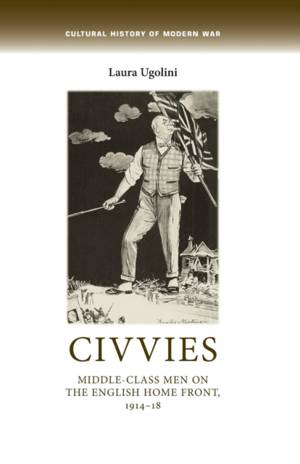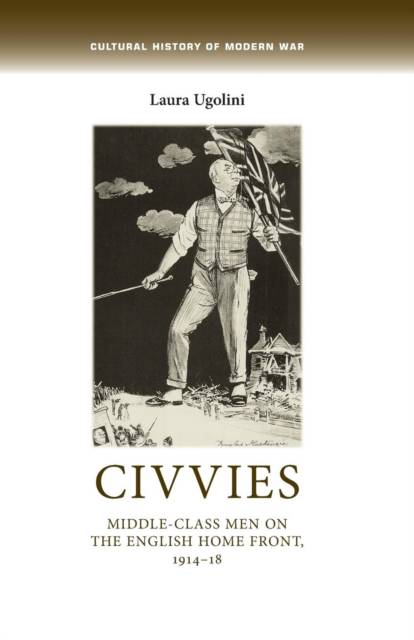
- Afhalen na 1 uur in een winkel met voorraad
- Gratis thuislevering in België vanaf € 30
- Ruim aanbod met 7 miljoen producten
- Afhalen na 1 uur in een winkel met voorraad
- Gratis thuislevering in België vanaf € 30
- Ruim aanbod met 7 miljoen producten
Zoeken
Omschrijving
The history of the First World War continues to attract enormous interest. However, most attention remains concentrated on combatants, creating a misleading picture of wartime Britain: one might be forgiven for assuming that by 1918, the country had become virtually denuded of civilian men and particularly of middle-class men who - or so it seems - volunteered en masse in the early months of war. In fact, the majority of middle-class (and other) men did not enlist, but we still know little about their wartime experiences. Civvies thus takes a different approach to the history of the war and focuses on those middle-class English men who did not join up, not because of moral objections to war, but for other (much more common) reasons, notably age, family responsibilities or physical unfitness. In particular, Civvies questions whether, if serviceman were the apex of manliness, were middle-class civilian men inevitably condemned to second-class, 'unmanly' status?
Specificaties
Betrokkenen
- Auteur(s):
- Uitgeverij:
Inhoud
- Aantal bladzijden:
- 352
- Taal:
- Engels
- Reeks:
Eigenschappen
- Productcode (EAN):
- 9781526116666
- Verschijningsdatum:
- 22/05/2017
- Uitvoering:
- Paperback
- Formaat:
- Trade paperback (VS)
- Afmetingen:
- 140 mm x 216 mm
- Gewicht:
- 444 g

Alleen bij Standaard Boekhandel
+ 170 punten op je klantenkaart van Standaard Boekhandel
Beoordelingen
We publiceren alleen reviews die voldoen aan de voorwaarden voor reviews. Bekijk onze voorwaarden voor reviews.








